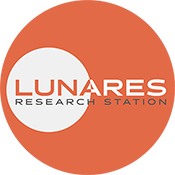Q: How does being an analog astronaut benefit my career or research?
A: By participating as an analog astronaut, you not only gain valuable real-world experience in an environment that simulates space conditions, but you also have the opportunity to collaborate with a network of professionals, researchers, and institutions. This can significantly enhance your skills, support your research objectives, and provide a competitive edge in your field.
Q: Can I opt in or opt out of external data gathering and collaboration?
A: Yes, you have the option to opt in or out of any external data gathering initiatives. While collecting data and fostering collaborations is usually a central purpose of participating in our analog missions—helping to achieve our collective research goals and enabling partnerships with other scientists and institutions—we fully respect your individual preferences regarding data sharing. If you choose to opt out, please note that it may limit the scope of your contribution to these collaborative efforts. However, we encourage open participation in data gathering as it enhances the scientific value of the mission for everyone involved.
Q: Can I propose a research project at LunAres?
A: Yes, LunAres welcomes research proposals! You can submit your proposal through our dedicated portal: Submit Research Proposal.
Q: How much does conducting research at LunAres cost?
A: The cost depends on the nature of the research and the type of collaboration:
- For LunAres Analog Astronauts: Conducting research at LunAres does not incur additional costs from the station itself. However, you must fund your experiment and inform us about any LunAres equipment you plan to use.
- For External Teams and Institutions: LunAres provides 4 different types of research service support: Mini Study, Expanded Study, Prime Study and Preliminary Study. All of the services are designed for different scale and scope of studies, providing accurate service. Learn more in the research submission section.
- Collaborative Grants and Tenders: LunAres is open to collaborating on grant and tender applications for analog research, even for studies not directly based at LunAres.
Q: Why should I conduct research at LunAres Research Station?
A: LunAres offers a unique environment for conducting high-quality analog research:
- Experienced Research Coordination: Our professional research coordinator will guide you in preparing your study for an analog mission, ensuring its alignment with mission scenarios and objectives.
- Controlled Environment for Longitudinal Studies: LunAres is the only analog facility that supports multiple mission-long studies in a controlled environment with consistent mission scenarios. This enables researchers to collect data across multiple missions, allowing for the transition from qualitative research to robust statistical studies.
- Proven Track Record: We have hosted research from renowned universities, collaborated with space agencies, and supported studies that have been conducted on the International Space Station. Our extensive experience ensures your research will be in good hands.
